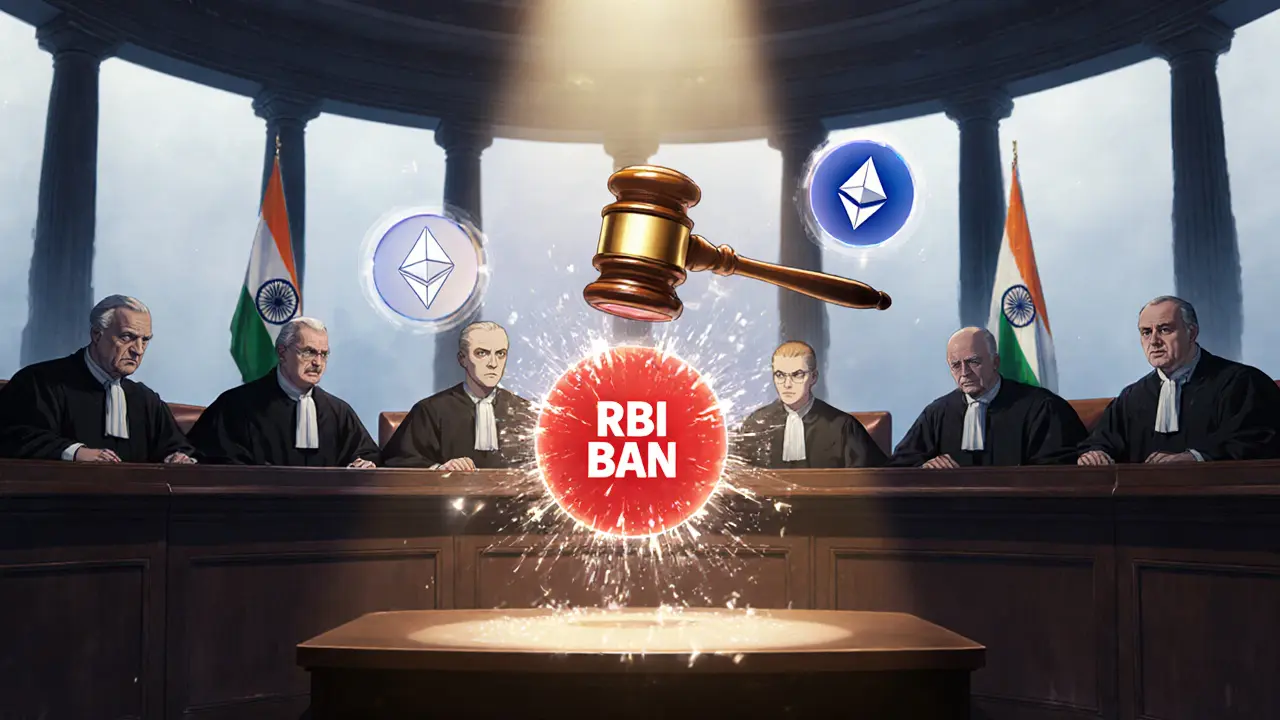RBI Crypto Policy – What It Means for Crypto Users
When looking at RBI crypto policy, Reserve Bank of India's framework that governs the use, trading, and taxation of cryptocurrencies in India. Also known as RBI guidelines on crypto, it shapes how traders, investors, and businesses interact with digital money.
The Cryptocurrency Regulation, set of rules that dictate how digital assets are handled by legal authorities. Also called crypto regulation, it directly follows the RBI policy, requiring exchanges to register, enforce KYC, and report large transactions. Meanwhile, the Central Bank of India, India's monetary authority that issues policy statements and oversees financial stability. Known simply as RBI, it issues the policy, monitors market impact, and can adjust rates or penalties. Finally, Digital Assets, cryptocurrencies, tokens, and other blockchain‑based financial instruments. Often referred to as digital currencies, they fall under the policy’s tax and anti‑money‑laundering provisions.
RBI crypto policy encompasses regulatory guidelines for cryptocurrency trading, which means every exchange must obtain a license and enforce strict KYC. Cryptocurrency regulation in India requires compliance from exchanges, and non‑compliant platforms face fines or bans. Central Bank of India influences digital asset policy through regular bulletins that clarify tax treatment, and it can issue warnings that affect market sentiment. Digital assets are classified as taxable assets, so capital‑gain tax applies to profits from buying and selling. The policy also mandates reporting thresholds for transactions over a certain amount, pushing firms to upgrade AML tools. Because of these rules, Indian traders now see more transparent price feeds and better consumer protection.
Understanding these connections helps you stay ahead of the curve. The RBI policy creates a legal backdrop that drives crypto exchange compliance, while broader cryptocurrency regulation sets the enforcement tone. Central Bank of India’s oversight ensures that digital assets are integrated responsibly into the financial system. As the policy evolves, new guidance on stablecoins, DeFi platforms, and crypto loans is likely to appear. Below you’ll find a curated set of articles that break down each aspect – from how to navigate exchange registration to the tax implications of holding digital assets, and even how regional bans compare to India’s approach. Dive into the collection to get actionable tips, real‑world examples, and the latest updates on this fast‑moving regulatory landscape.Key Areas Covered by RBI Crypto Policy
- October 12, 2025
- Comments 20
- Cryptocurrency

